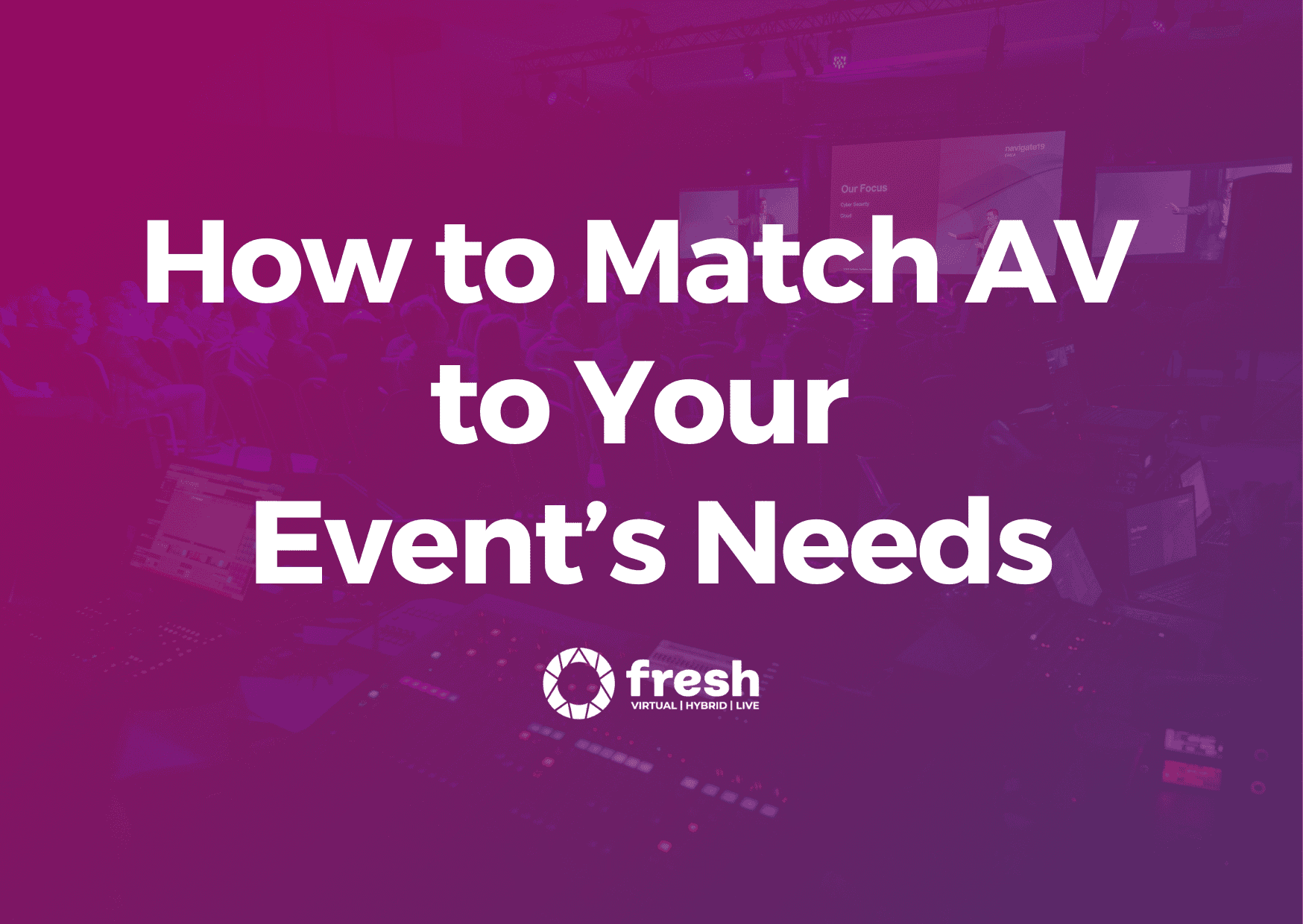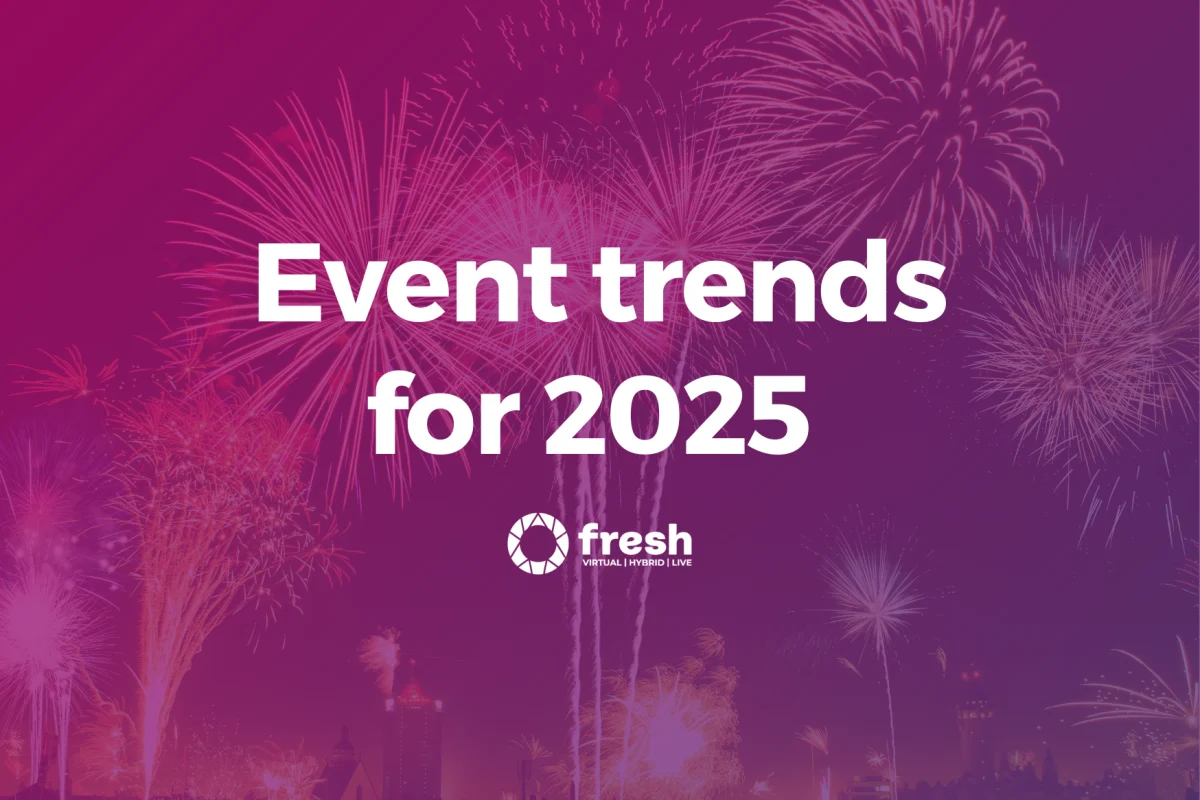The new year is here with a bang, and we’ve taken a look back at how 2024 has gone and what it means for trends in 2025. Our insights and experiences suggest that people are looking for companies to connect with them as individuals, meeting their unique desires in order to feel seen and understood. We’ve added below what we think will be trending next year and how you can use these trends to create the best unique events for your audiences.
1. Advanced hybrid events driven by AI
Look to push boundaries with how you build your platforms and create opportunities for genuine connections for your audience. By using AI-powered tools you can measure more elements of branded experiences, allowing for a truly in-depth understanding of how your audience interacts with your product or service, and with each other. Depending on how well a business can harness AI, using this can help to create a completely inconvenience-free experience, allowing attendees to fully centre themselves in new connections.
2. Audiovisual (AV): Immersive Experiences Take Centre Stage
Using AV equipment to create immersive experiences will be a huge trend for 2025. Firstly, using them for hybrid events will be important as AV setups will need to cater for both physical attendees and virtual audiences seamlessly. You will need to involve technology such as Spatial Audio, high-quality live streaming and LED backdrops.
Projection mapping and using interactive displaying will also be important as they grow in popularity. They will allow the transformation of any space into a visually stunning environment that can tell a story or showcase a business in a new way.
Lastly it will also be important, with the growing emphasis on sustainability, to expect more venues and providers to focus on energy-efficient lighting and equipment. Rechargeable wireless microphones, LED screens, and compact setups will dominate as organisations aim to lower their carbon footprint.
3. Hyper-personalised attendee experiences
Personalisation has already been a cornerstone of how businesses engage audiences in 2024. As this becomes the minimum expectation for many attendees, the pressure for businesses to take this to the next level of personalisation will be on in 2025.
By using insightful attendee data, and expertly inputting this into the right AI-powered tools, businesses can add that extra layer of personalisation to their experiences, with elements such as personalised agendas, customised follow-ups and tailored event communications.
4. Logistics: Precision and Personalisation
Data-Driven Event Planning
In 2025, logistics are being supercharged by data. Event organisers are increasingly using AI-powered tools to streamline operations, such as attendee management, resource allocation, and real-time updates. Data analytics are also driving personalised experiences, ensuring every attendee feels valued and engaged.
Attendees will be expecting more sustainable logistics by using sustainable venues and vendors, using less paper and encouraging sustainable habits from attendees such as using public transport. Logistics are also expected to continue to use more digital options such as QR codes and technologies that will enhance check-in processes, enable contactless interactions, and provide detailed data about attendee preferences and behaviours for future planning.
5. Sustainability as a fundamental priority
With more people looking to business leaders to address social instability, businesses should look at catering to this demand by creating experiences that cause a cascade of positive change, triggered by attendee interaction.
On a practical level, this could be initiatives such as matching donations received throughout an event or crafting visual and interactive displays that track a brand’s sustainable impact in real time. To summarise, businesses need to create opportunities for attendees to spread sustainable impact in partnership with the brands they support.
6. The role of AI and robotics in event management
The conversation around using AI and robotics in the event space can often be a cause for concern and caution, and leaves question marks over the long-term sustainability of integrations. However, these technologies are set to revolutionise the organisation, management, and execution of events in 2025. They will be a powerful companion to a team’s existing creative skills. If adopted strategically, and in a way that mitigates AI burnout in teams, AI and robotics can enhance operational efficiency, creating a seamless event that audiences are expecting as a minimum in 2025.
7. Videography: Creating Evergreen Content
Videography is no longer just about live streaming or event recaps. In 2025, events will produce short form videos for platforms such as TikTok, Instagram reels and YouTube shorts to drive engagement and long form videos for internal training, marketing campaigns and for educational purposes. However, there will be new trends that will be used to enhance both forms of video in 2025. Firstly using 360-degree video and VR integration is becoming more mainstream, allowing attendees to revisit events virtually and it also means the opportunity to extend the lifecycle of your events and reach a broader audience.
Secondly, as already mentioned, using AI will be a huge trend for 2025, and this will be the same for videography. Expect faster turnaround times with automated editing, transcription services, and AI-generated highlights, enabling event teams to create polished content in record time. Lastly videography will focus more on storytelling in 2025. By weaving compelling narratives into videos, businesses can foster deeper emotional connections with their audiences. Whether it’s capturing behind-the-scenes footage or recording authentic testimonials, storytelling will remain key to creating evergreen content.
Conclusion:
Stay ahead of the curve in 2025 by embracing these trends, and ensure your events stand out in an increasingly competitive landscape. Whether you’re planning a product launch, a sales kick-off, or an industry conference, focusing on immersive AV, seamless logistics, AI and innovative videography will set your events apart.
The above trends are primed to redefine the event space and become the minimum expectation for businesses looking to create and deepen relationships with individuals.
Chat with our team today
Read More
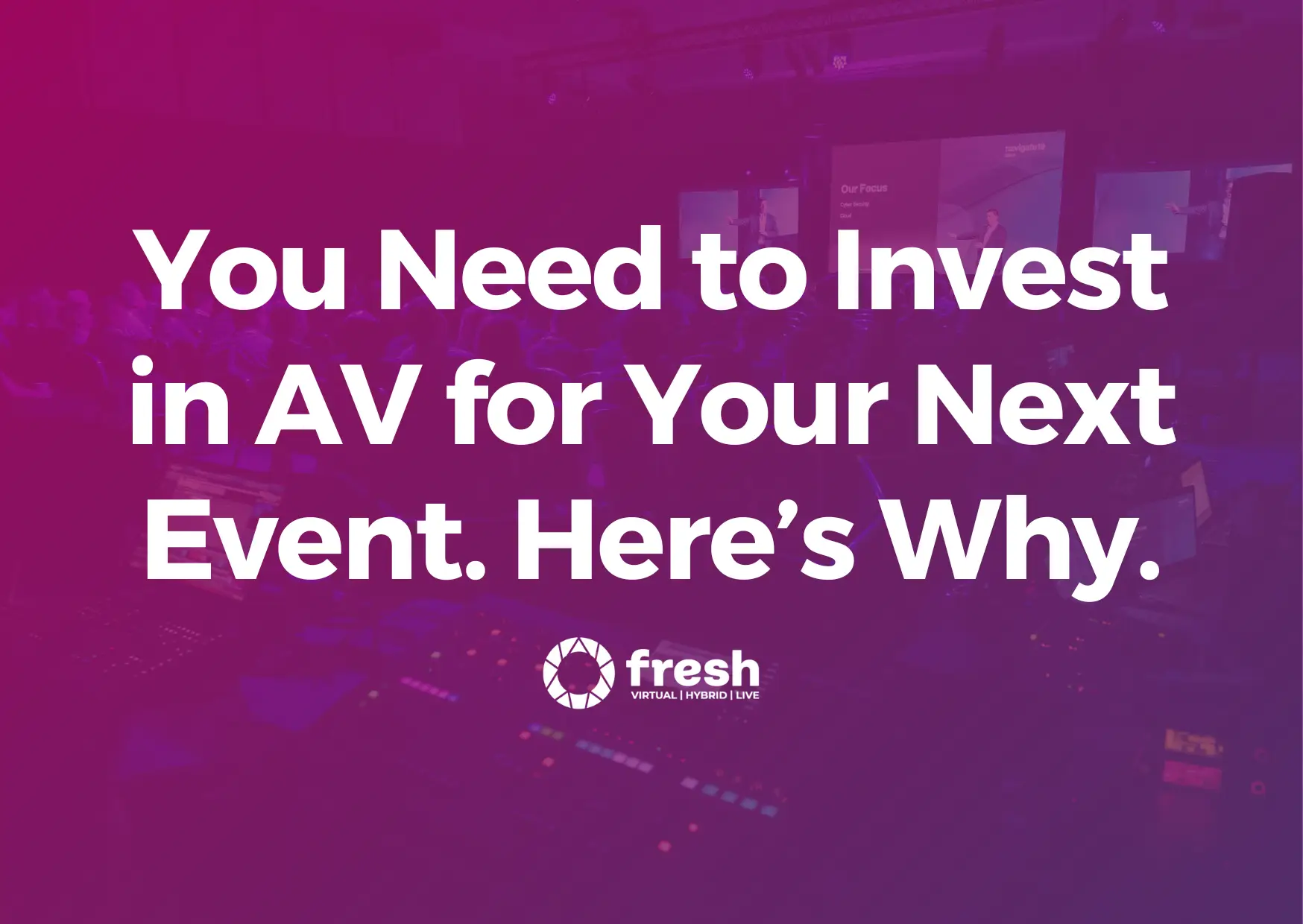
You Need to Invest in AV for Your Next Event. Here’s Why.

Event Logistics Without the Headache: How to Keep It Fresh (Literally)
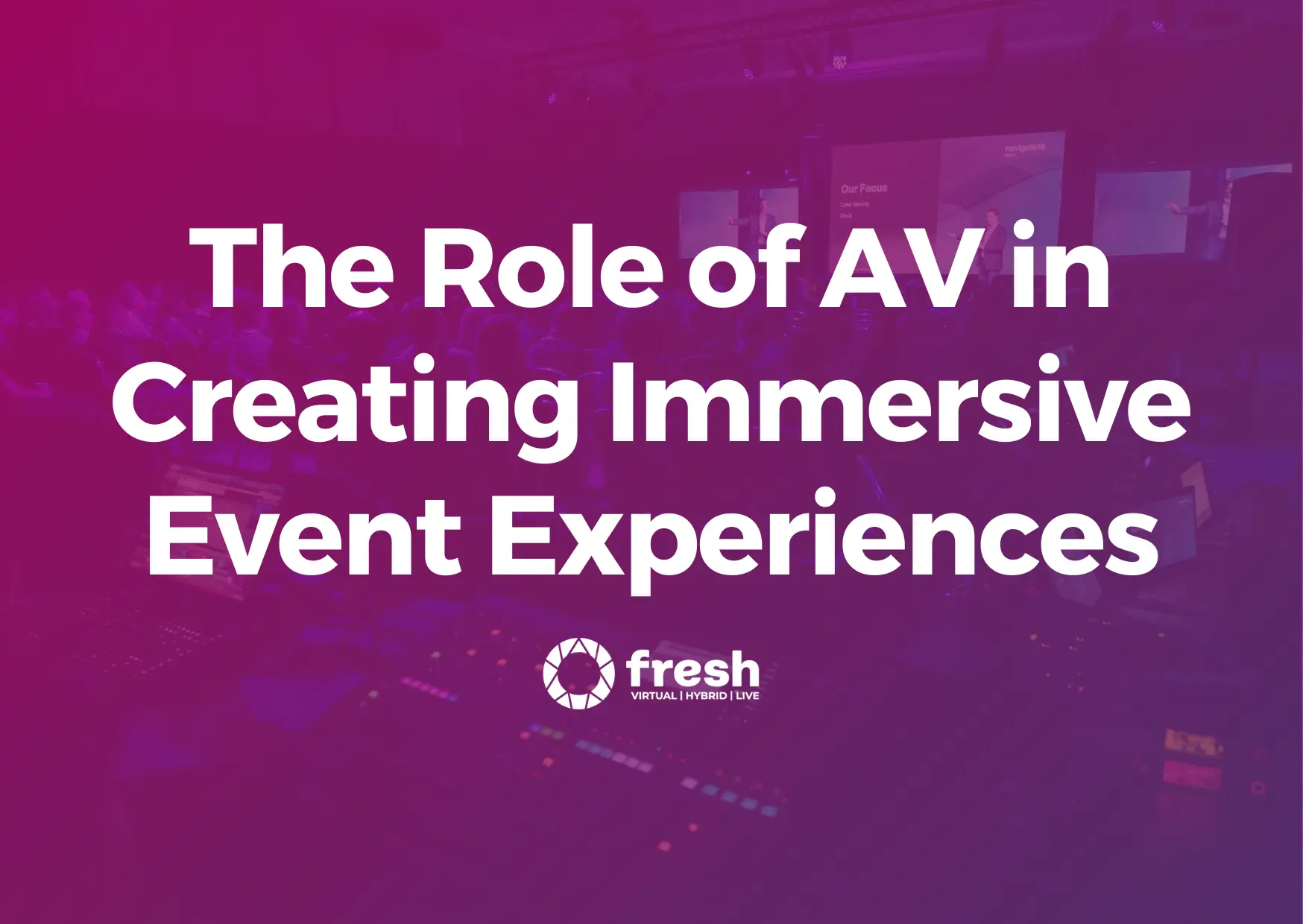
The Impact of AV Technology in Creating Immersive Event Experiences
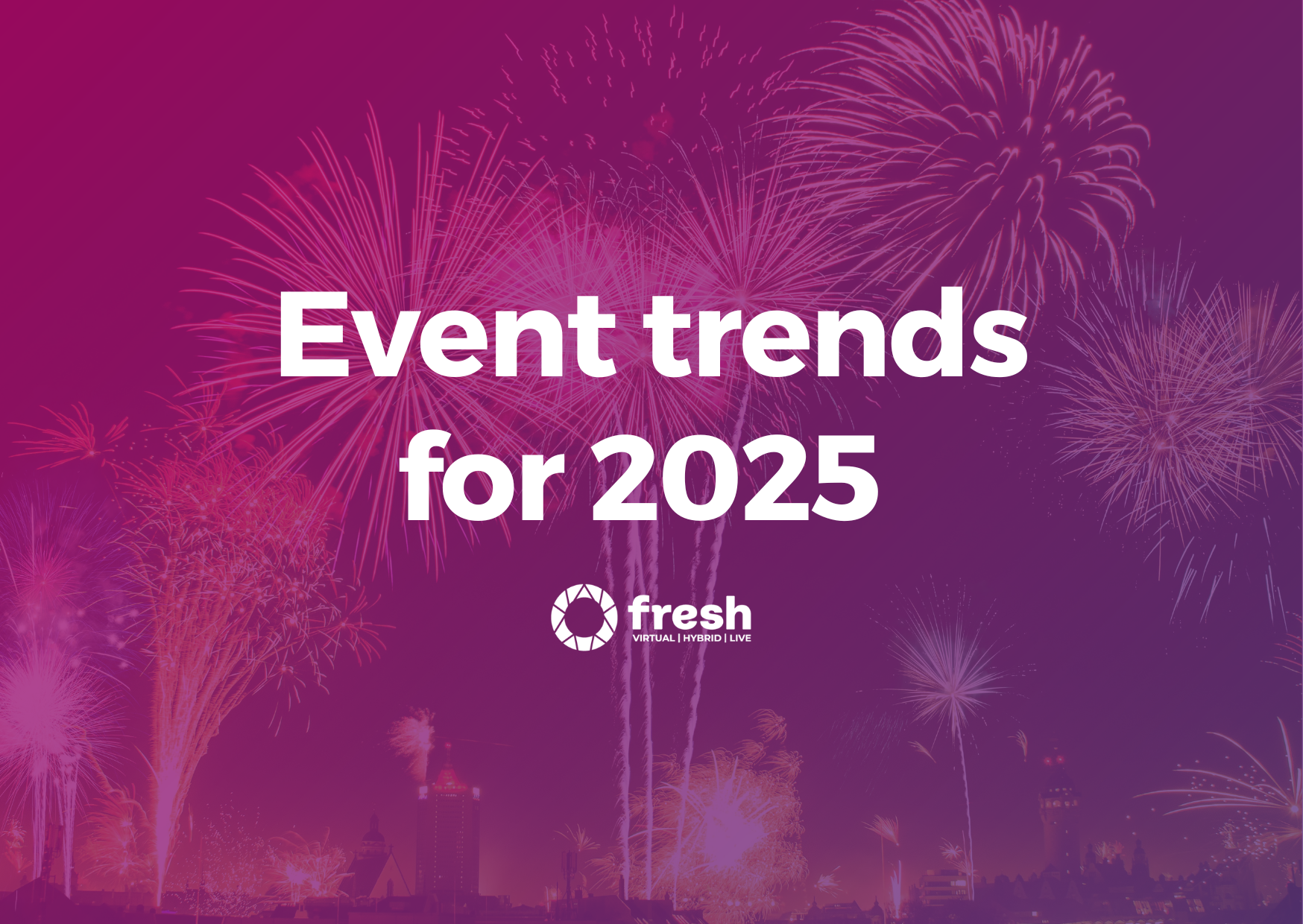
Top Event Trends for 2025: AV, Logistics, and Videography
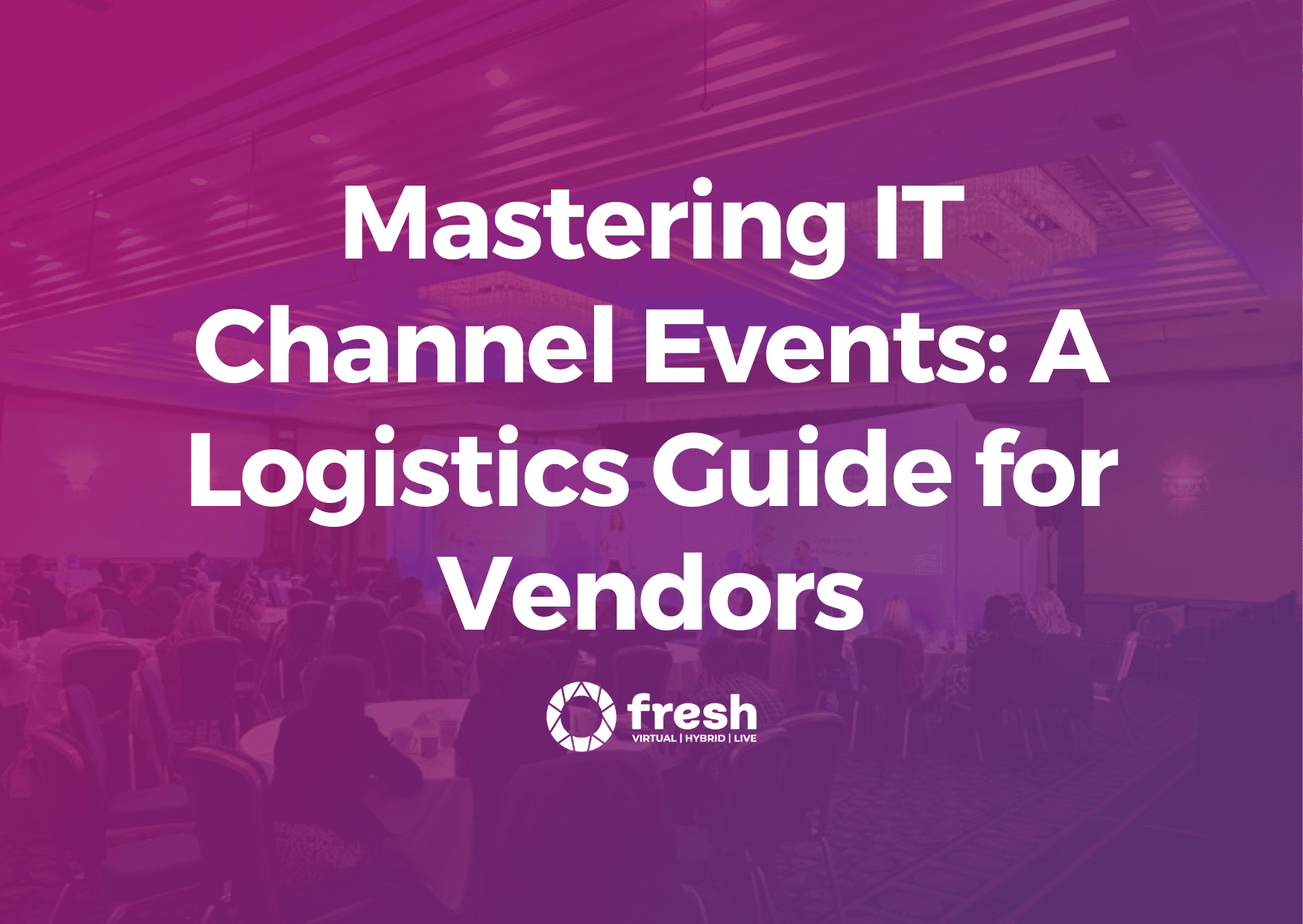
Mastering IT Channel Events: A Logistics Guide for Vendors
